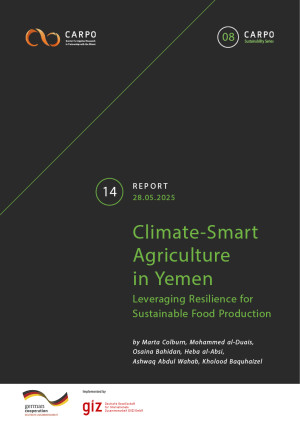CARPO Reports
by Marta Colburn, Mohammed al-Duais, Osaina Bahidan, Heba al-Absi, Ashwaq Abdul Wahab and Kholood Baquhaizel
Yemen’s agricultural heritage has been severely impacted by conflict, climate change, urbanization, labor shortages, and the expansion of qat cultivation, all of which have degraded traditional practices and productivity. The use of chemical inputs has harmed soil health and bee populations, further disrupting farming. Since 2015, agriculture has declined amid growing poverty and food insecurity, making Yemen highly vulnerable to environmental crises. This report highlights the need for climate-smart agriculture, focusing on reviving traditional water management systems and integrating modern techniques such as drip irrigation, greenhouses, and organic composting. Women, central to farming and livestock rearing, must be actively involved, alongside civil society, cooperatives, youth, the private sector, and government actors. Investment is needed in seed banks, drought-resistant crops, urban farming, and green technologies to reduce post-harvest losses, especially for women. Revitalizing the livestock, honey, coffee, and medicinal plant sectors is also critical, requiring coordinated action from all stakeholders to build resilience and ensure food security.
Download publication in English Download publication in Arabic
